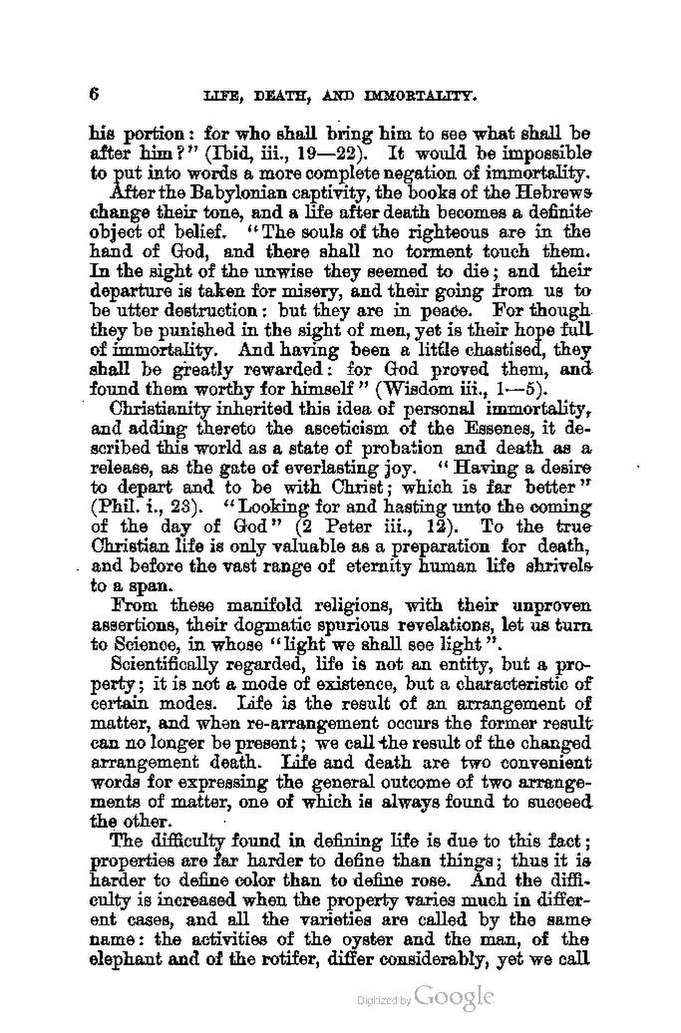his portion: for who shall bring him to see what shall be after him?" (Ibid, iii., 19—22). It would be impossible to put into words a more complete negation of immortality.
After the Babylonian captivity, the books of the Hebrews change their tone, and a life after death becomes a definite object of belief. "The souls of the righteous are in the hand of God, and there shall no torment touch them. In the sight of the unwise they seemed to die; and their departure is taken for misery, and their going from us to be utter destruction: but they are in peace. For though they be punished in the sight of men, yet is their hope full of immortality. And having been a little chastised, they shall be greatly rewarded: for God proved them, and found them worthy for himself" (Wisdom iii., 1—5).
Christianity inherited this idea of personal immortality, and adding thereto the asceticism of the Essenes, it described this world as a state of probation and death as a release, as the gate of everlasting joy. "Having a desire to depart and to be with Christ; which is far better" (Phil. i., 23). "Looking for and hasting unto the coming of the day of God" (2 Peter iii., 12). To the true Christian life is only valuable as a preparation for death, and before the vast range of eternity human life shrivels to a span.
From these manifold religions, with their unproven assertions, their dogmatic spurious revelations, let us turn to Science, in whose "light we shall see light".
Scientifically regarded, life is not an entity, but a property; it is not a mode of existence, but a characteristic of certain modes. Life is the result of an arrangement of matter, and when re-arrangement occurs the former result can no longer be present; we call the result of the changed arrangement death. Life and death are two convenient words for expressing the general outcome of two arrangements of matter, one of which is always found to succeed the other.
The difficulty found in defining life is due to this fact; properties are far harder to define than things; thus it is harder to define color than to define rose. And the difficulty is increased when the property varies much in different cases, and all the varieties are called by the same name: the activities of the oyster and the man, of the elephant and of the rotifer, differ considerably, yet we call
